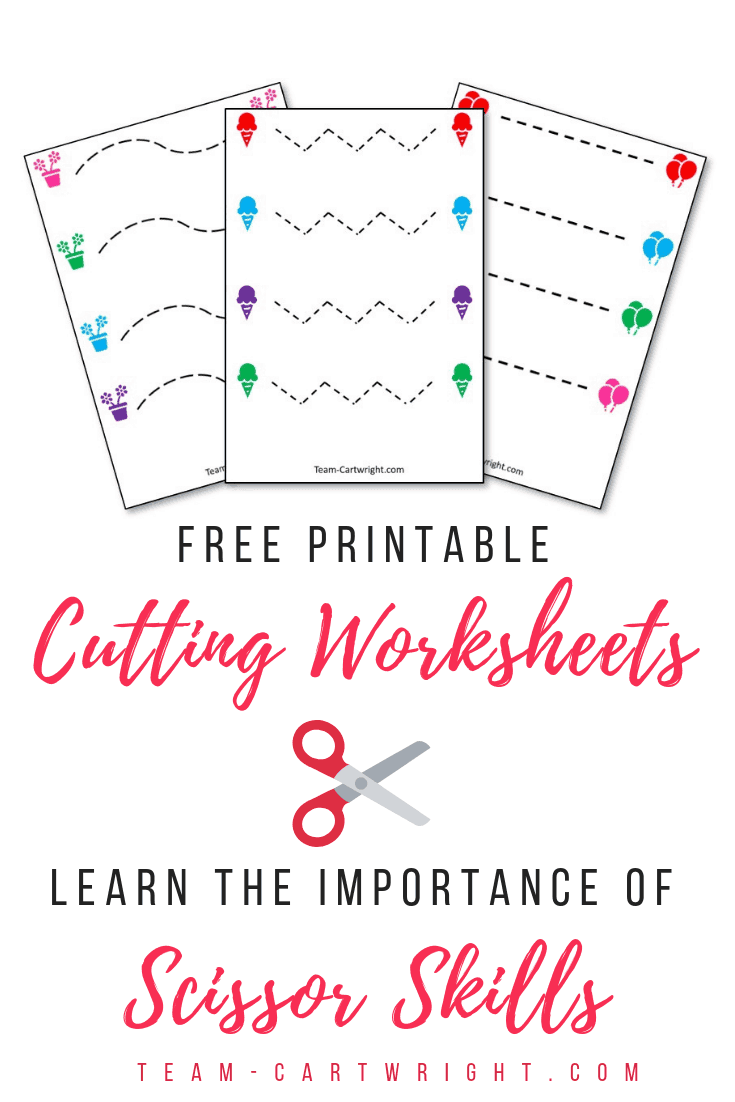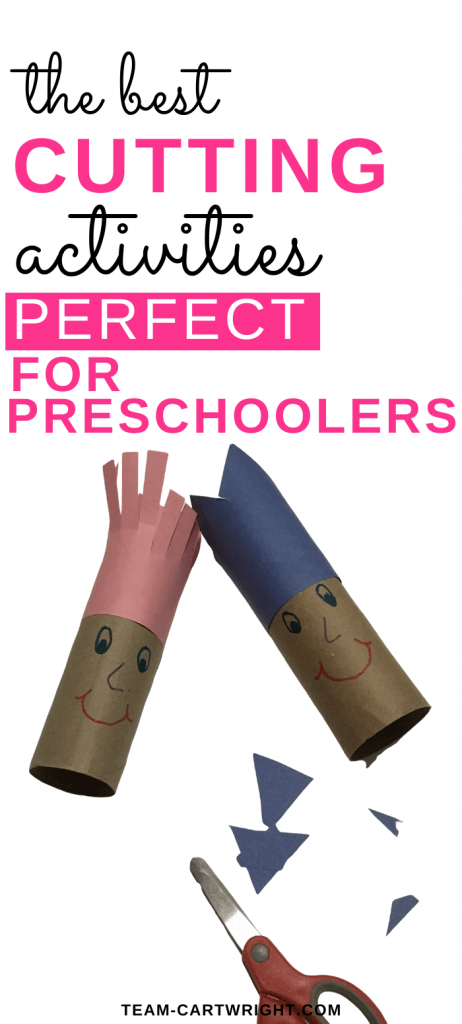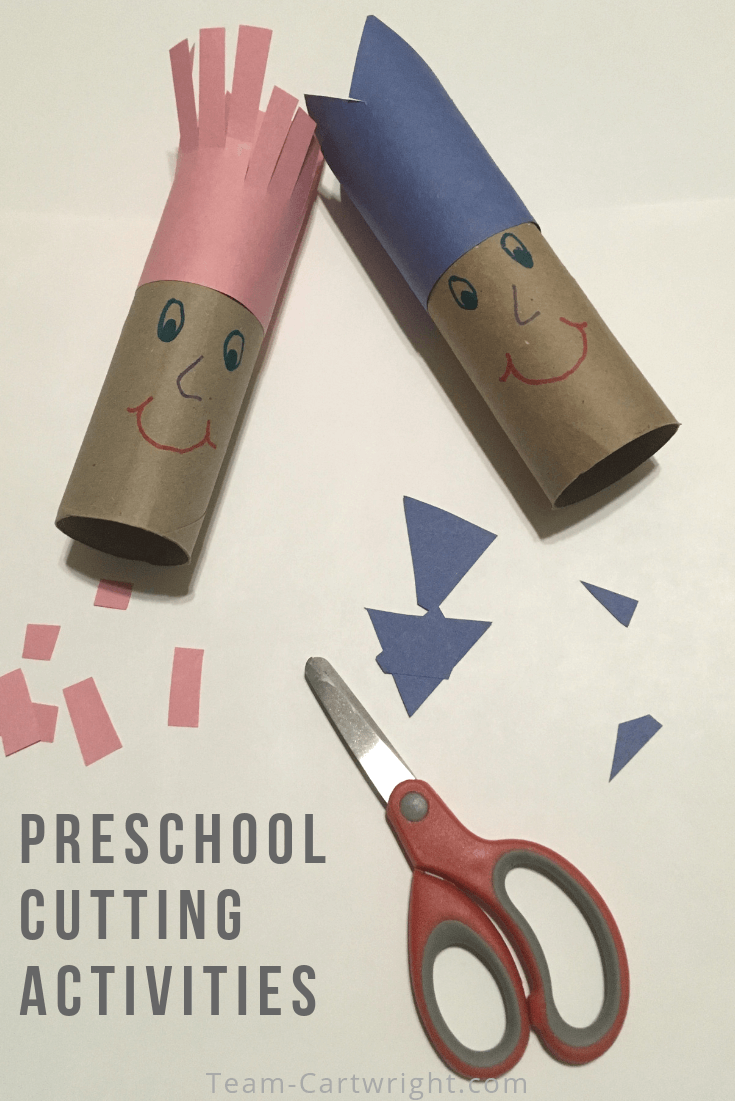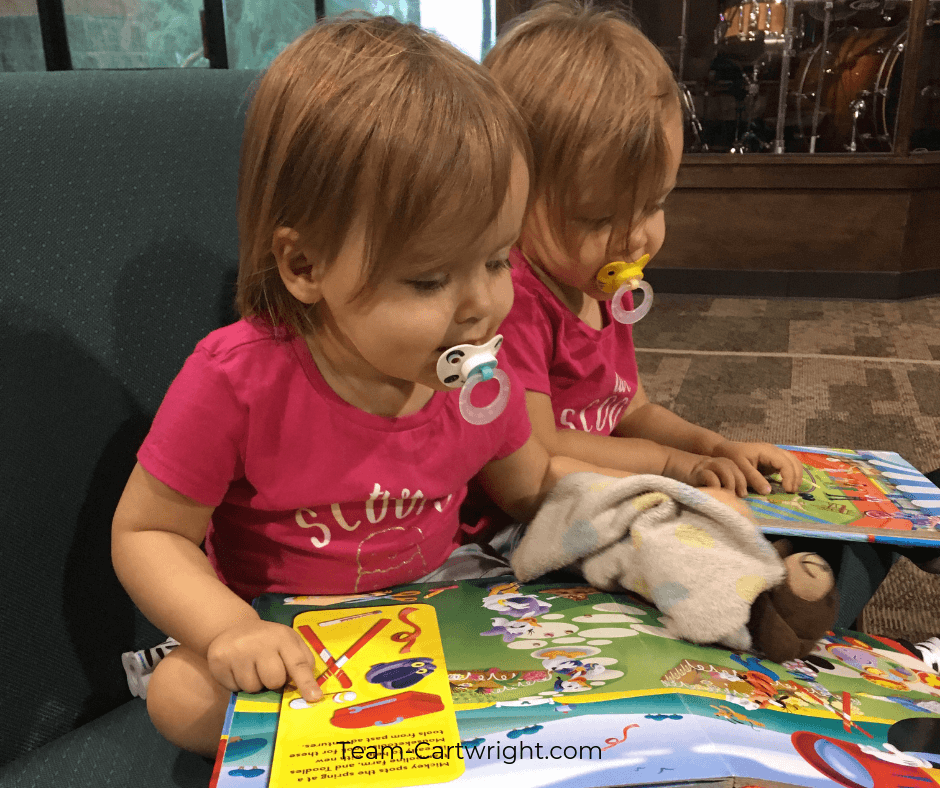Cutting Activities for Preschoolers
I love learning activities and want to encourage my kids to develop in all areas, physical, mental, emotional. We do it all- letters, numbers, balance practice, running outside.
There is one thing that I did not want to work on though. I was too nervous. It wasn’t safe. We weren’t going to do it.
Until I knew we had to.
Scissor skills.
Yep, learning how to cut is actually really important for kids. And it means I had to hand a sharp deadly weapon to my child and sit by while he almost cut his fingers off.
Maybe it wasn’t that bad. In fact, there are a lot of really important reasons to work on cutting skills, and there are a lot of super safe ways to do it.
Here is why cutting skills are so important and easy cutting activities for preschoolers. (And of course, I’ll be including some fun free printable cutting activities for preschoolers at the end.)
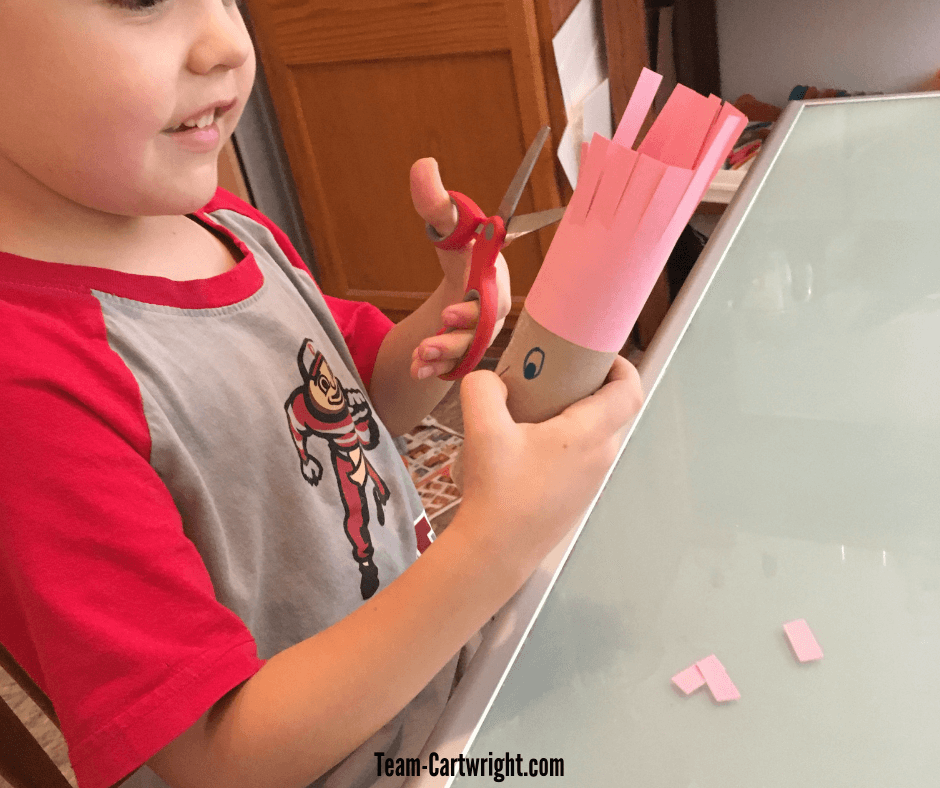
What's In This Post?
Why Scissor Skills Are So Important
Why are cutting skills just so important? Can’t we just wait until kids are older and better at being careful before we have them practice with some sharp scissors?
Teaching kids to cut is about a lot more than lines on paper.
Bilateral Coordination
Cutting is unique to some early crafting skills in that it builds bilateral coordination. That means it uses both sides of the body at the same time.
Preschool cutting activities require your child to hold and turn the paper with one hand and cut with the other hand. It isn’t easy! But this is good practice for future activities that use both sides of the body at the same time, which is a lot of things in life.
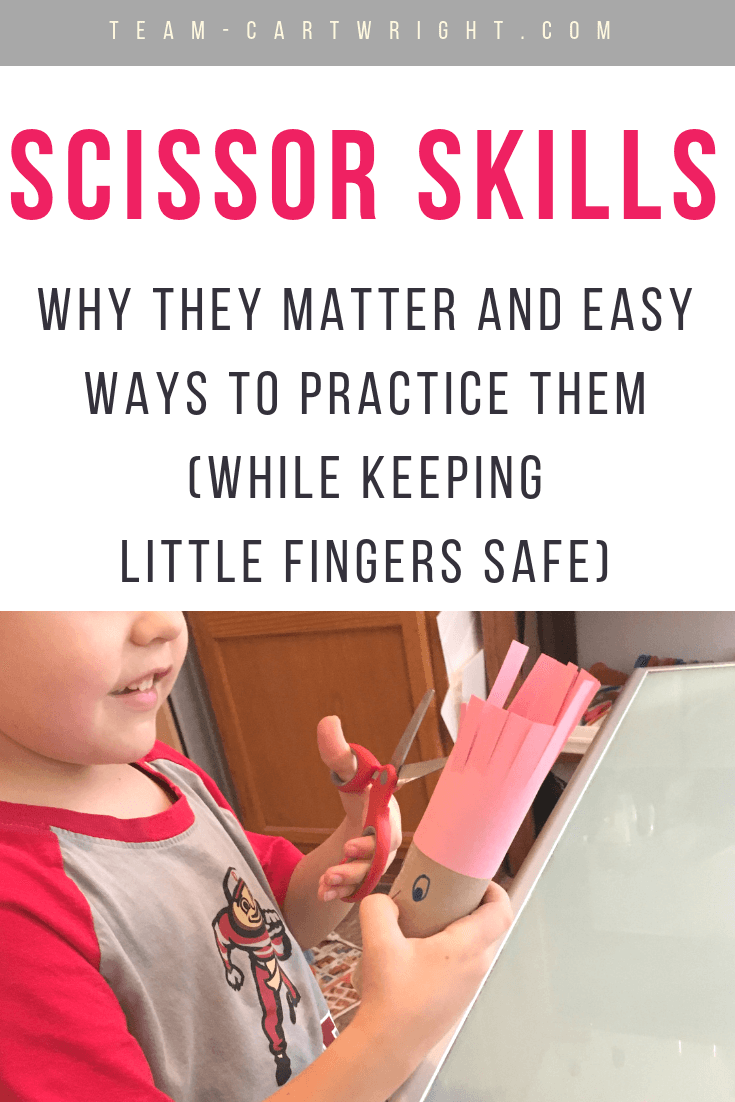
Fine Motor Skills
The physical act of using scissors to open and close works fine motor skills. Sure, there are other ways to practice these skills too, but cutting works the hand in a unique way.
Fine motor activities help kids when it comes to holding pens and pencils to write and for manipulating small items.
You can think of doing a cutting activity as being like when you do reps at the gym. You are doing a repeated activity that builds up muscle strength. It’s just that muscles are in the hand and arm.
Hand-Eye Coordination
Cutting practice helps to build visual motor skills, aka hand-eye coordination. To cut children need to follow a line on a page with their eyes AND the scissors in their hands.
Hand-eye coordination is important for everyday tasks like writing, eating, catching a ball. It also helps with skills like reading. The eye needs to be able to track smoothly to read well, and scissor skills work the same process.
A Few Extra Bonuses
Cutting practice for young kids strengthens hand muscles. We use our hands a lot so this helps with many skills and just life in general.
We use our fingers to manipulate objects in very specific and fine ways. Cutting actually requires a lot of individual movements from our fingers giving lots of practice to this.
Scissors for Lefties

Ben tends to cut with his left hand. Left-handed scissors make this a whole lot easier. We like these Left Handed Scissors for Kids. They are relatively cheap and work well for tiny hands.
If you think your child is a leftie check with their teacher to see if they have enough pairs of leftie scissors. Like a lot of things they tend to disappear easily, so keep your kids supplied.
Good Scissors for Preschoolers
Here are some more good scissor options for you. The most important thing is to have scissors the right size for your child’s hands.
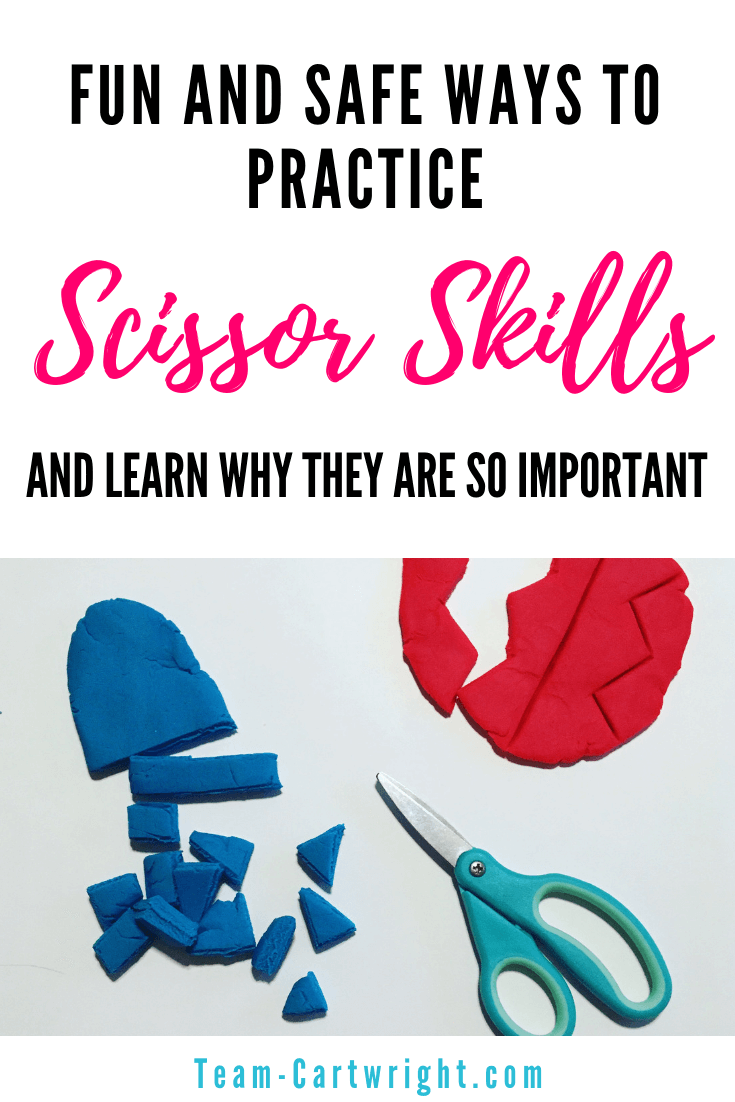
Cutting Activities for Preschoolers
Let’s Practice Cutting!
There are a lot of fun crafts and activities to practice cutting with your child that also keep safety in mind. Basically, you can work these skills with scissors and stop your worries that you will end up in the ER.
Use a Hole Punch
If you aren’t ready to hand over the scissors yet you can start with a hole punch. The old fashioned, handheld, single hole kind. The work on a similar principle to scissors.
I drew shapes on pieces of construction paper and had Ben punch holes along the lines. (Bonus shape work!) You squeeze the hole punch the same way you do scissors and can work on following a line as you go.
This isn’t exactly the same as scissor skills, as the punches bounce back and you have to open scissors manually. But it is a great start, especially if you are a nervous mom like me. (This is a great one for two-year-olds who want to be like big brother too!)
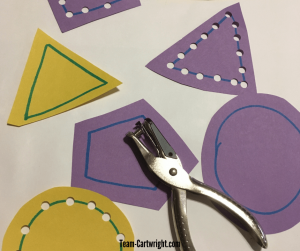
Cutting Play Dough
You can get Play-Doh kits that come with scissors. The great thing about these? Those scissors are just for cutting the clay. That means there is about no way to actually cut skim with them.
Besides simple safety play-doh offers nice resistance to build hand muscles. It also is stiff and holds its shape while being cut.
Play-doh is also great because it is reusable. You can cut, reform the dough, and cut again. This is helpful both for just conservation and for perfectionist children. You can always fix it and try again.
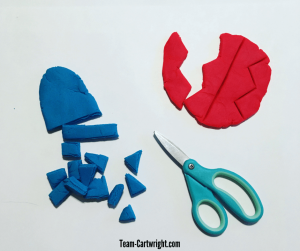
Paper Plate Cutting
Paper plates are great for cutting because they are stiffer. That makes it easier for little ones to hold with one hand safely far away from the scissor blades but still control the paper for cutting.
This can be a freeform activity where you just hand over a plate and some scissors and let your child go. You can trace a line on the plate to follow. (Paper plates lend themselves to cutting curved lines very well.)
It’s also fun to draw a face on the plate and let your child give it a haircut.
Toilet Paper Tube Hair Cuts
This is one of my favorite ways to practice cutting because my kids got a big kick out of it. Gather up some toilet paper tubes and construction paper.
Tape some construction paper around the top of the tube, leaving it pretty long. Then draw a cute little face on the tube. Now your child is ready to give it a hair cut! (Scissor practice just lends itself so well to haircut activities.)
This activity also keeps the scissors far away from tiny fingers, and it lets your children explore their creative side.
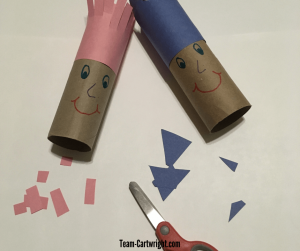
Cut Different Textures
Another fun way to keep cutting practice fresh is to just cut different textures. Try straws, yarn, several sheets of paper at once. If you have extra fabric or felt pieces try cutting those.
Do you have thin foam sheets? Or perhaps bubble wrap? The idea is just to try new things and get a feel for the scissors. You can then use the pieces to create a collage!
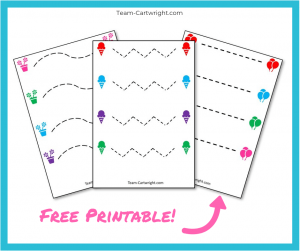
Cutting Worksheets
If you want to work more specifically on cutting straight lines, curves, and zig zag lines you can print out worksheets for your child to cut. And you guessed it, I’ve included some here!
These are a fast and fun way to work on simple cutting skills. You can find them in my library of free printables! Gain access by using the sign-up form below. That gets you all my free worksheets and activities to do with your kids plus signs you up for the Team Cartwright newsletter. (You can unsubscribe at any time.) I hope you and your kids enjoy the free worksheets!
Get Cutting!
I have found these easy activities take away my fear and open up all kinds of learning for my kids. (Although I am still eternally grateful to all the preschool teachers that hand scissors over to a class full of kids. Such bravery!)
Happy cutting!
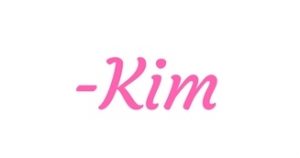
Try some of these fun learning activities!
Learn the Benefits of Coloring and Get Free Coloring Pages
Easy and Mess-Free Sensory STEM Fun!
